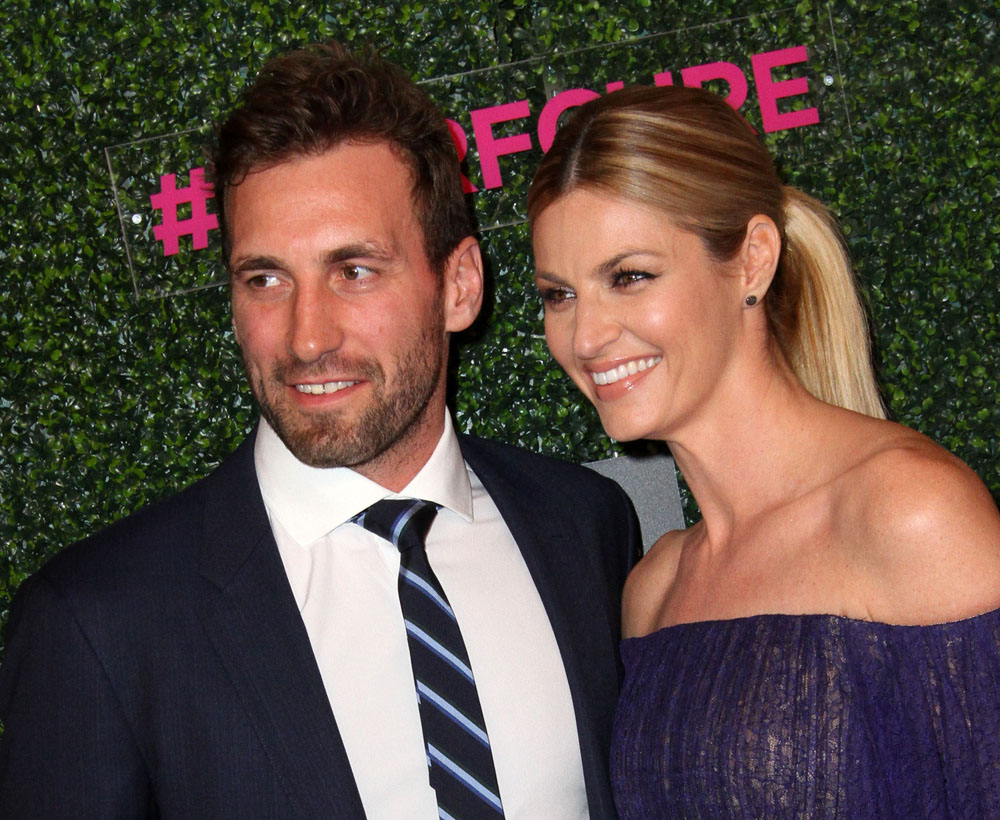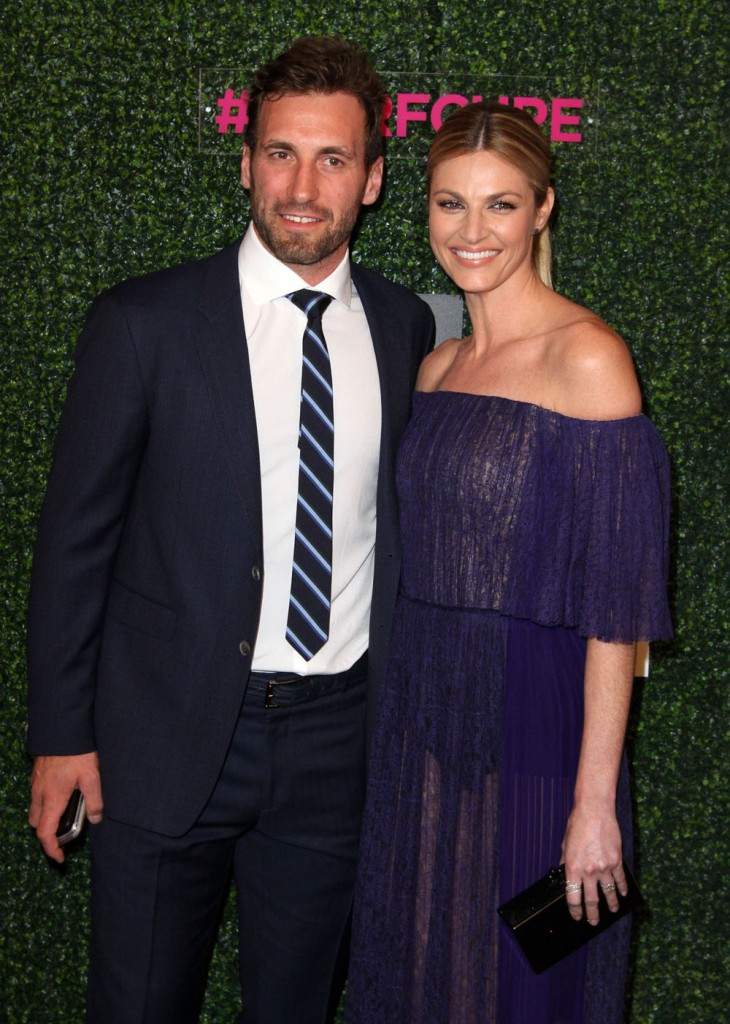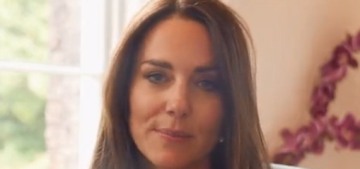Embed from Getty Images
As much as I think the pharmaceutical industry is a racket that’s taking advantage of a broken healthcare system, I’m usually ok with it when celebrities partner with drug companies. I guess that’s because they help raise awareness about the need for screening, and because many celebrities end up championing causes which have personally affected them. DWTS host Erin Andrews was diagnosed with cervical cancer in 2016. She had surgery within a month and was back to work at her job as a sportscaster in just a few days. It was a lot for her to deal with, but she thought of herself like an athlete, like she had to power through and get back to work. (That was her way of coping, everyone is unique and some people take more time off.) Erin is partnering with a company called Hologic to encourage cervical cancer screening. They recommend that women have a pap smear every year and that they combine that with an HPV test every five years.
“For me and family, we were just very shocked. We knew the reaction was going to be powerful but we didn’t know the stats involved with cervical cancer. Every two hours a woman dies of cervical cancer. When myself, my family, my husband saw that we just had no idea that this was as big of a problem as it is. People aren’t really discussing these numbers and stats.”
“I’m out there to encourage women to get to your doctor and go get checked. Cervical cancer is preventable and treatable but our goal is to get women to their doctors. Women shouldn’t be dying of this. Another thing is, every woman is very busy. And we all like to use that as a crutch, but we’ve got to stop with the excuses you have to put it in your calendar and you have to go.”
Reading this story reminds me that I’m overdue for my yearly OB GYN visit. That’s easily something I’ll put off so it does help when celebrities who had cancer urge us to get the screening that caught it.
Erin has been married to her husband, Canadian hockey player Jarrett Stoll, for about a year. Erin admitted that her cervical cancer diagnosis helped fast track their relationship as she had to decide whether to create and freeze embryos ahead of time. She’s 40, which really surprises me. I thought she was around 34, but just because she’s been in the spotlight for a while. If I saw her without knowing her I would think she was ten years younger.
photos credit: WENN and Getty
















Healthcare for women in this country is abominable. I have excellent health insurance and cannot get proper care for my women’s -health issues. I cannot imagine what it’s like for women with no insurance or under-insured. And it’s only getting worse under Trump.
Agree. I have probably the best health insurance you can get and getting care for PCOS is such a struggle. PCP and GYN brush me off and it will take months to get in with an endocrinologist.
Also, the new five year rule for paps seems really long. Will insurance cover them if it’s less than five years?
Dunno if you have been following this awful story from Ireland on this topic:
https://www.irishtimes.com/news/health/number-of-deaths-in-cervical-screening-controversy-rises-to-18-1.3495763
Except the standard of care now is pap smear every three years. I had to have surgery several years ago, so I wanted to have a pap smear every year. Seemed reasonable to me, given my history. Doctor wouldn’t do it. She said the standard of care now is every three years because so often the body will “fix” it itself. And in cases where it doesn’t, it’s such a slow growing cancer, it’s not a huge deal if it’s not caught right away.
So there you go, ladies. The state of women’s health care in this supposedly developed country.
I flat out objected to my GYN about the change in standard of care and told him that if men were the ones getting it, screenings would be every year if not 6 months. He actually agreed with me. He screens me annually even though I am in what is considered a lower-risk category. But cervical cancer can strike regardless, and it spreads fast. My SIL went from a clean PAP smear to a complete hysterectomy in one year’s time.
Every day, 193 American women die of lung cancer. No risk factors required. The fastest growing segment of the population is never-smoking young women. Every woman needs to be aware that if you have lungs, you can get lung cancer.
What Erin is recommending is not what the American College of Obstetrics and Gynecology recommends. They do not recommend Pap tests more than once every 3 years.
Erin is partnering on her more frequent testing campaign with the company (Hologic) that manufactures/sells the test kits. Just something to be aware of.
What would be more helpful is less fearmongering from the media regarding the HPV vaccine.
Don’t you love those guilt-the-parents commercials?
When you say fear mongering, you mean you are supportive of the vaccine correct?? Please tell me you’re not an anti vaxxer.
Having spent my formative years in Australia where sexual health education is more comprehensive I’m always surprised by the anecdotes from my 19 year old daugher (schooled in the US since middle school) about the sexual mores of her peers. Most, but not all, cervical cancer is caused by HPV and the earlier a woman becomes sexually active ups the odds even more. Very, very few of my daughters peers uses barrier methods regularly and fear of unwanted pregnancy seems to be the dominant concern. If you have daughters and sons who are sexually active or heading into that age bracket, talk about preventative sexual health. Talk about sex. Talk about condoms. Talk about diseases related to unprotected sex. Unwanted pregnancy is regrettable but not often fatal unlike cervical cancer.